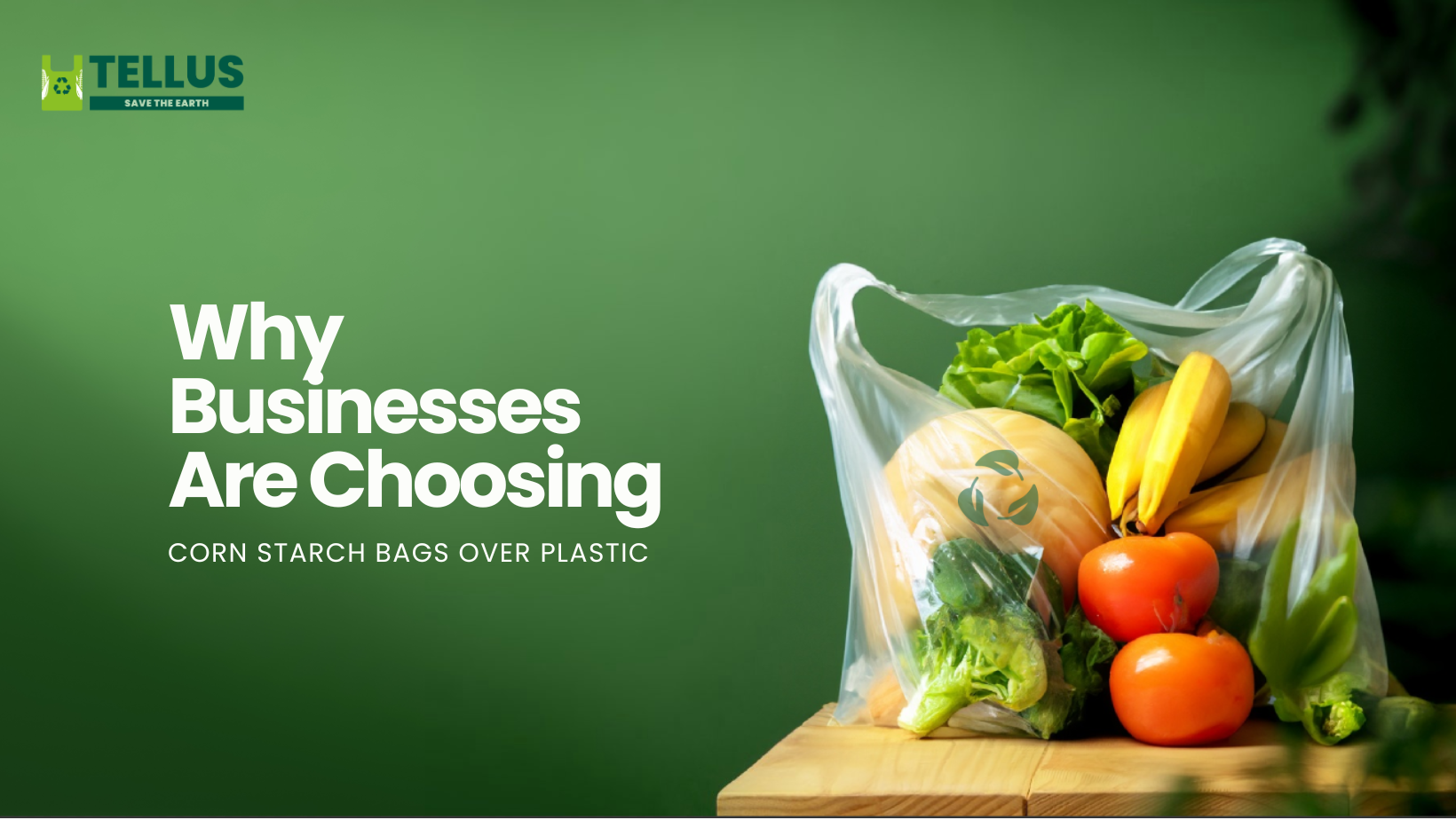
In a rapidly evolving market, businesses are increasingly recognizing the importance of sustainability, not just as an environmental statement but also as a financial strategy. Corn starch bags are emerging as a frontrunner in this shift. In this context they are not only a nod to eco-consciousness but also a savvy business decision. This article delves into the reasons why switching to corn starch bags from traditional plastic is not just eco-friendly but also pocket-friendly for businesses.
Financial Benefits of Corn Starch Bags
- Reduced Waste Management Costs: Businesses, particularly in the food industry, can significantly cut down on waste shipping costs by opting for compostable corn starch bags. The lightweight nature and compost ability of these bags lead to reduced waste management expenses.
- Enhanced Brand Image: In today’s consumer market, a commitment to sustainability can positively impact a brand’s image. Studies have shown that a significant portion of consumers, including Baby Boomers, are willing to pay more for products from environmentally responsible companies. Utilizing corn starch bags can enhance a brand’s image, attracting a growing segment of eco-conscious customers, and potentially boosting sales.
- Lowered Carbon Footprint: The production of corn starch bags results in lower carbon emissions compared to traditional plastic bags. This reduction in carbon footprint can be a key factor for businesses aiming to meet sustainability goals and reduce environmental taxes or penalties.
- Efficient Use of Resources: Corn starch bags are crafted from renewable resources, which helps businesses reduce their dependence on fossil fuels and their derivatives. This shift not only benefits the environment but also positions the business as a forward-thinking entity in an increasingly resource-conscious market.
TellUs: Your Partner in Sustainable Packaging
At TellUs, we specialize in providing bio compostable corn starch bags that merge environmental responsibility with financial prudence. Our bags offer a sustainable alternative for businesses looking to replace traditional plastic bags without incurring excessive costs. By choosing TellUs, businesses can enjoy the dual benefits of contributing to environmental health and enjoying economic advantages.
The Broader Impact:
The move towards corn starch bags is not just a cost-saving measure; it’s an investment in the future. With increasing awareness of the environmental impact of packaging and the growing demand for sustainable solutions, businesses that adopt corn starch bags position themselves as leaders in the green revolution.
Environmental Impact:
- Decomposition Time: Traditional plastic bags can take up to 1,000 years to decompose, whereas corn starch bags start to break down within 90 to 180 days in industrial composting facilities.
- Landfill Space Saved: Millions of tons of plastic waste are sent to landfills annually. Shifting to biodegradable corn starch bags can significantly reduce this number, thereby conserving landfill space.
Financial Impact:
- Waste Management Savings: Consider a hypothetical calculation. If a business shifts 50% of its plastic bag usage to corn starch bags, reducing waste management costs by 10%, the savings can be substantial. For instance, if the annual waste management cost is ₹7,50,000, switching to corn starch bags could save ₹75,000 per year.
- Brand Image: Approximately 51% of consumers are willing to pay more for products from environmentally responsible companies. This shift in consumer behaviour can lead to increased revenue and market share for businesses using sustainable packaging.
Corn starch bags present a compelling case for businesses not only from an environmental standpoint but also from a financial perspective. They offer a cost-effective, sustainable packaging solution that aligns with both ecological and economic goals. As we continue to navigate towards a greener future, the question remains: is your business ready to make the cost-effective switch to sustainability?
